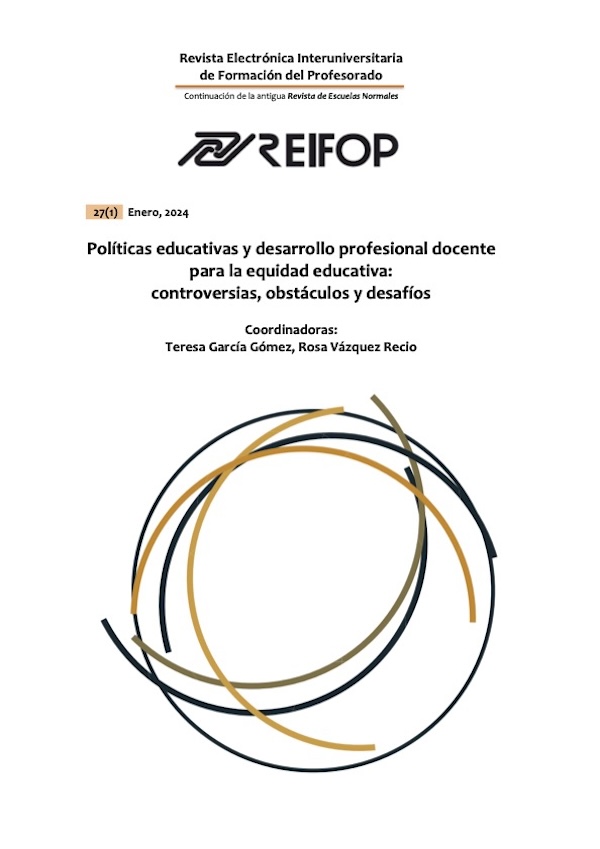Application of Artificial Intelligence (AI) in Education: Benefits and Limitations of AI as Perceived by Primary, Secondary, and Higher Education Teachers.
Abstract
The aim of this research has been to identify the main benefits and limitations that primary education, secondary education, and higher education teachers perceive regarding the use of artificial intelligence in education. To achieve this, a total of 276 opinions were collected from teachers currently working in educational institutions, who were asked about the benefits and limitations they considered in integrating artificial intelligence in classrooms. The results indicate that, overall, teachers perceive more limitations than benefits in the use of artificial intelligence. Among the most prominent benefits are the facilitation of tasks and access to resources. As for the major perceived limitations, they include inappropriate use and lack of critical review of the results. A correspondence analysis revealed a significant association between certain benefits and limitations based on the educational stage in which the teachers work. Finally, these results reveal a distinct perception among teachers at different stages, which implies a need for differentiated teacher training in the use of artificial intelligence according to the specific requirements of each educational stage.
Downloads
-
Abstract48066
-
pdf (Español (España))25296
References
Ahmad, S. F., Rahmat, M. K., Mubarik, M. S., Alam, M. M., & Hyder, S. I. (2021). Artificial Intelligence and Its Role in Education. Sustainability, 13(22), Article 22. https://doi.org/10.3390/su132212902
Baidoo-Anu, D. & Owusu Ansah, L. (2023). Education in the Era of Generative Artificial Intelligence (AI): Understanding the Potential Benefits of ChatGPT in Promoting Teaching and Learning, SSRN, January 25. http://dx.doi.org/10.2139/ssrn.4337484
Botelho, F. H. F. (2021). Accessibility to digital technology: Virtual barriers, real opportunities. Assistive Technology, 33(sup1), 27-34. https://doi.org/10.1080/10400435.2021.1945705
Chen, L., Chen, P., & Lin, Z. (2020). Artificial Intelligence in Education: A Review. IEEE Access, 8, 75264-75278. https://doi.org/10.1109/ACCESS.2020.2988510
Chen, N.-S., Yin, C., Isaias, P., & Psotka, J. (2020). Educational big data: Extracting meaning from data for smart education. Interactive Learning Environments, 28(2), 142-147. https://doi.org/10.1080/10494820.2019.1635395
Chounta, I.A; Bardone, E.; Raudsep, A. & Pedaste, M. (2022). Exploring Teachers’ Perceptions of Artificial Intelligence as a Tool to Support their Practice in Estonian K-12 Education. International Journal of Artificial Intelligence in Education, 32, 725–755
Córica, J. L. (2020). Resistencia docente al cambio: Caracterización y estrategias para un problema no resuelto. RIED. Revista Iberoamericana de Educación a Distancia, 23(2), 255-272.
Cukurova, M., Luckin, R., & Kent, C. (2020). Impact of an Artificial Intelligence Research Frame on the Perceived Credibility of Educational Research Evidence. International Journal of Artificial Intelligence in Education, 30(2), 205-235. https://doi.org/10.1007/s40593-019-00188-w
Glaser, B.G. & Strauss, A.L. (2017). The discovery of Grounded Theory. Strategies for qualitative research. London: Taylor & Francis.
Grace, E. G., P. Vidhyavathi, & P. Malathi. (2023). A study on "AI in education: opportunities and challenges for personalized learning. Industrial Engineering Journal, 52(05), 750-759. https://doi.org/10.36893/IEJ.2023.V52I05.750-759
Jara, I., & Ochoa, J. M. (2020). Usos y efectos de la inteligencia artificial en educación. https://doi.org/10.18235/0002380
Kabudi, T., Pappas, I., & Olsen, D. H. (2021). AI-enabled adaptive learning systems: A systematic mapping of the literature. Computers and Education: Artificial Intelligence, 2, 100017. https://doi.org/10.1016/j.caeai.2021.100017
Korteling, J. E. (Hans)., van de Boer-Visschedijk, G. C., Blankendaal, R. A. M., Boonekamp, R. C., & Eikelboom, A. R. (2021). Human- versus Artificial Intelligence. Frontiers in Artificial Intelligence, 4. https://www.frontiersin.org/articles/10.3389/frai.2021.622364
Marín, V. & Romero, M.A. (2009). La formación docente universitaria a través de las TICs. Pixel-Bit. Revista de Medios y Educación, 35, 97-103.
Mousavinasab, E., Zarifsanaiey, N., R. Niakan Kalhori, S., Rakhshan, M., Keikha, L., & Ghazi Saeedi, M. (2021). Intelligent tutoring systems: A systematic review of characteristics, applications, and evaluation methods. Interactive Learning Environments, 29(1), 142-163. https://doi.org/10.1080/10494820.2018.1558257
Murtaza, M., Ahmed, Y., Shamsi, J. A., Sherwani, F., & Usman, M. (2022). AI-Based Personalized E-Learning Systems: Issues, Challenges, and Solutions. IEEE Access, 10, 81323-81342. https://doi.org/10.1109/ACCESS.2022.3193938
Perales, F.J. y Vílchez, J.M. (2012). Libros de texto: ni contigo ni sin ti tienen mis males remedio. Alambique: Didáctica de las ciencias experimentales, 70, 75-82.
Real Decreto 217/2022, de 29 de marzo, por el que se establece la ordenación y las enseñanzas mínimas de la Educación Secundaria Obligatoria. Boletín Oficial del Estado, 76, de 30/03/2022.
Reiss, M. J. (2021). The use of AI in education: Practicalities and ethical considerations. London Review of Education, 19. https://doi.org/10.14324/LRE.19.1.05
UNESCO. (2019, diciembre 9). La Inteligencia Artificial en la Educación. UNESCO. https://es.unesco.org/themes/tic-educacion/inteligencia-artificial
Vinuesa, R., Azizpour, H., Leite, I., Balaam, M., Dignum, V., Domisch, S., Felländer, A., Langhans, S. D., Tegmark, M., & Fuso Nerini, F. (2020). The role of artificial intelligence in achieving the Sustainable Development Goals. Nature Communications, 11(1), Article 1. https://doi.org/10.1038/s41467-019-14108-y
Wang, Z., Liu, J., & Dong, R. (2018). Intelligent Auto-grading System. 2018 5th IEEE International Conference on Cloud Computing and Intelligence Systems (CCIS), 430-435. https://doi.org/10.1109/CCIS.2018.8691244
Los artículos que se publican en esta revista están sujetos a los siguientes términos:
1. El Departamento de Métodos de Investigación y Diagnóstico en Educación de la Universidad de Murcia (España), junto con el Servicio de Publicaciones de la Universitdad de Murcia (Editum) son los editores de la revista REIFOP y conserva los derechos patrimoniales (copyright) de los artículos publicados, permitiendo la reutilización de las mismos bajo la licencia de uso indicada en el punto 2.
2. Las obras se publican en la edición electrónica de la revista bajo una licencia Creative Commons Reconocimiento-NoComercial-SinObraDerivada 3.0 España (texto legal). Se pueden copiar, usar, difundir, transmitir y exponer públicamente, siempre que: i) se cite la autoría y la fuente original de su publicación (revista, editores y URL de la obra); ii) no se usen para fines comerciales; iii) se mencione la existencia y especificaciones de esta licencia de uso.
3. Condiciones de auto-archivo. Se permite y se anima a los autores a difundir electrónicamente las versiones pre-print (versión antes de ser evaluada) y/o post-print (versión evaluada y aceptada para su publicación) de sus obras antes de su publicación, ya que favorece su circulación y difusión más temprana y con ello un posible aumento en su citación y alcance entre la comunidad académica. Color RoMEO: verde.















